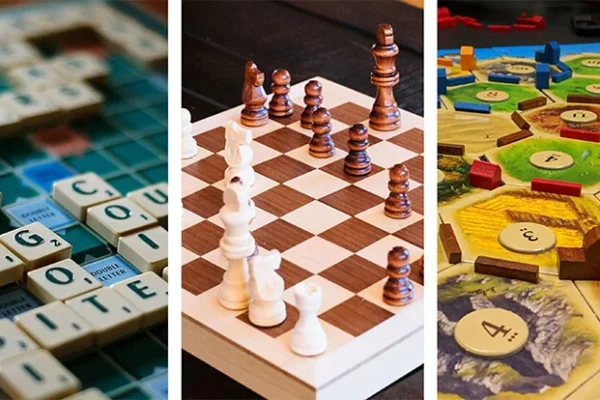Comparison with others is a natural human tendency, but when it becomes constant, it can significantly harm our psychological health and overall well-being, leading to dissatisfaction, stress, and even depression, as we strive to meet unrealistic standards set by society or ourselves.
When we contrast our lives with the idealized “best moments” of others, we lose our sense of uniqueness and value.
By comparing ourselves to others, we often focus on what we don’t have, rather than appreciating what we do. This can undermine our self-esteem, self-respect, and develop feelings of inferiority. It can also become a barrier to achieving personal goals, as we spend energy on comparison rather than self-improvement.
Moreover, comparison can destroy relationships, as envy and jealousy poison interactions with others. Instead of fostering support and collaboration, we may feel competition and distance, leading to isolation and loneliness.
But how do we stop comparing ourselves to others and envying them when social media only exacerbates this problem by providing a continuous stream of other people’s images, videos, and success stories?
Understanding the harm of comparison is the first step to overcoming it, allowing us to reevaluate our views on success and happiness, strive for personal growth and development, and seek fulfillment from within, rather than external recognition. Acknowledging our uniqueness and value enables us to build healthy self-esteem and enjoy a happy and meaningful life.
Each of us possesses a unique set of qualities, experiences, and talents that define our individuality. Instead of looking to others as a measure of success, it is important to recognize and appreciate our uniqueness. This understanding helps us see that everyone’s life path is unique, and comparing ourselves to others is not only meaningless but harmful.
Recognizing the uniqueness of others helps us appreciate the beauty in the diversity of human lives and understand that success can look different for everyone. This allows us to let go of societal standards and appreciate our own achievements and progress without comparing them to others. Such acceptance fosters healthy self-respect and promotes the development of inner peace and contentment.
Rather than striving for perfection by others’ standards, it’s essential to focus on personal development and growth, freeing ourselves from limitations and opening doors to genuine self-expression and self-realization. Understanding the futility of comparisons becomes a powerful source of motivation and inspiration for personal growth and achieving our goals, driven by internal aspirations and capabilities.

Why do we compare ourselves to other people?
In the modern world, where every moment of life can be captured and shared in the public sphere, the ground for comparing ourselves to others is more fertile than ever. We live in an era where achievements, appearances, and lifestyles are constantly on display through social media, creating the illusion of an endless race for success and perfection. This invisible yet palpable societal gaze forms an overwhelming urge to compare ourselves to others, despite knowing that such comparisons rarely bring pleasure or happiness.
Comparing ourselves to other people becomes an automatic process, which can happen even without our conscious awareness. It originates in the deeper recesses of the human psyche, where our desires for belonging, recognition, and achievement are rooted. However, despite the apparent normality of this process, it is crucial to understand its origins to comprehend why it has such a powerful influence on our psyche and behavior.
The Impact of Social Media
Social media has become an integral part of our lives, serving not only as a means of communication and self-expression but also as an endless source of comparisons. The influence of social media on both teenagers and adults is growing by the day. Every time we scroll through a news feed, we encounter idealized images of other people’s lives, their successes, travels, and achievements. These seemingly innocent photos or videos can deeply affect our self-perception and sense of happiness.
When every achievement, every moment of joy or success can be measured in likes, comments, and followers, it’s easy to forget the reality behind these virtual facades. We begin to compare our everyday lives to the exceptional moments of others’ lives, often leading to feelings of dissatisfaction. This endless loop of comparisons can become a source of stress and anxiety, undermining our confidence and ability to appreciate what we have.
The Influence of Social Expectations and Standards
Social expectations and standards play a significant role in shaping our self-awareness and self-perception. From childhood, we are taught to strive for certain goals and ideals that are assumed to lead to success and happiness. These standards can relate to career, appearance, lifestyle, relationships, and many other aspects. As a result, we start evaluating ourselves and our achievements through the lens of these accepted benchmarks, which often leads to chronic feelings of dissatisfaction with ourselves.
This influence is amplified by media and cultural icons that shape and perpetuate certain stereotypes and ideals. From advertising that emphasizes the need to have the perfect body to movies and television where success is often portrayed through material wealth and social recognition, we are constantly bombarded with messages about how we should look, live, and what we should achieve.
This constant pressure forces people to compare their lives to unrealistic standards set by society, often leading to frustration and dissatisfaction. This is especially noticeable in youth culture, where the need to be “perfect” has a huge impact on the formation of personality and self-esteem.
Insecurity and Low Self-Esteem
Inner insecurity and low self-esteem often lie at the root of the tendency to compare oneself to others. These feelings can have various causes, including past failures, criticism from significant others, or a mismatch with personal aspirations and norms. When a person is insecure in their abilities or dissatisfied with themselves, they may seek external standards of success to evaluate their worth. This leads to an endless cycle of comparisons, which only intensifies the initial feelings of insecurity and inferiority.
Insecurity and low self-esteem can lead a person to constantly seek approval and recognition from others, instead of finding sources of satisfaction within themselves. This desire can exacerbate dependence on the opinions of others and heighten the fear of criticism, making the individual even more vulnerable to the negative influence of comparisons.
Furthermore, when external successes and achievements are the foundation of self-esteem, any failure or deficiency compared to others will cause deep emotional distress, even depressive states. This approach to self-esteem makes a person dependent on fluctuating and often unattainable standards, undermining the inner sense of stability and life satisfaction.
Understanding the roots of inner insecurity and working to improve self-esteem can help break the cycle of comparing oneself to others and start the journey toward self-acceptance and inner peace. This involves developing self-awareness, recognizing one’s own strengths and achievements, and learning to see oneself as a whole and valuable person, independent of external evaluations.

The Consequences of Comparing Oneself to Others
In a society where every step we take can be illuminated and judged, the invisible pressure of comparison constantly lingers. This pressure, initially subtle, can over time have profound and long-lasting effects on our lives.
The deeper we dive into the vortex of comparisons, the harder it becomes to enjoy our own lives without looking over our shoulder at the lives of others. We begin to notice that our self-perception, our relationships, and even our mental health are put to the test—trials we ourselves create. This unconscious drive for competition and achievement not only diverts us from our own goals and desires but also fosters a range of emotional and psychological problems.
Every time we weigh ourselves on the scales of comparison, we risk losing something far more valuable than it seems at first glance. True happiness and self-realization lie outside the realm of constant comparisons and competition.
Negative Impact on Mental Health
Comparing oneself to others can seriously undermine a person’s mental health, leading to a range of negative consequences. This process often triggers mechanisms that lower self-esteem and increase stress levels, potentially causing anxiety disorders and depression. Persistent comparisons cause individuals to focus on their shortcomings and failures rather than appreciating their own achievements and qualities, deepening a sense of inadequacy and helplessness.
It can also lead to obsessive-compulsive disorder (OCD) and related behaviors, where a person constantly strives to meet unrealistic standards based on their perception of others’ successes. This compulsive pursuit of perfection can lead to significant mental and emotional exhaustion, as the goals remain unattainable due to their unrealistic nature.
Moreover, constant comparison can amplify social isolation among insecure individuals who fear being judged or failing to meet societal expectations. This avoidance of social interaction further exacerbates feelings of loneliness and alienation, worsening their psychological state.
Decreased Life Satisfaction
A decline in life satisfaction is one of the key consequences of continually comparing oneself to others. When people assess their accomplishments and lifestyle by looking at the successes of others, it can lead to a persistent belief that their own lives are not good enough or that they haven’t achieved what they think they were supposed to. This constant striving for unattainable standards, set either by society or by their own perceptions of happiness, lays the foundation for disappointment and dissatisfaction.
Comparison can cause individuals to focus on what they lack instead of appreciating what they have. This skewed perception undermines the ability to enjoy the present moment and to be grateful for existing blessings. As a result, instead of building happiness on personal achievements and meaningful relationships, people may become consumed by an endless chase for unattainable ideals.
This state not only diminishes the quality of life in the present but also hinders personal growth and development in the future. To counter this, it is important to learn to appreciate one’s unique path and achievements without comparing them to the lives of others. This helps restore inner balance and harmony, promoting a healthier view of oneself and the world.
Increased Stress and Anxiety
Constantly comparing oneself to others can significantly increase stress and anxiety levels. When people measure their success and worth based on others’ achievements, it often leads to a persistent feeling of dissatisfaction and a desire to match or surpass them. This relentless race creates inner conflict, as individuals face unrealistic expectations of themselves, heightening anxiety and stress.
Anxious thoughts about whether you’re falling behind in life or whether you’re good enough compared to others can lead to constant psychological tension. This state of chronic anxiety not only depletes mental and emotional resources but can also have long-term consequences on physical health, such as sleep disturbances, digestive issues, and cardiovascular problems.
Moreover, increased stress and anxiety can reduce the ability to enjoy life and appreciate the present moment. All of this creates a vicious cycle, where the drive for comparison only amplifies negative emotions, undermining confidence and the ability to see one’s own successes and strengths. To break this cycle, it is important to recognize the harm that comparison can cause and work on developing healthy strategies to combat stress and anxiety.

Strategies for Overcoming Comparison
At some point in each of our lives, we realize that constantly comparing ourselves to others brings nothing but anxiety and dissatisfaction. It is at this moment that we face the task of finding a path to inner peace and self-acceptance. Overcoming the habit of comparing oneself to others means opening the door to a world where confidence and positive self-perception become the foundation of every day.
Many people ask: how can this state be achieved? How can we overcome the internal barriers that prevent us from valuing our own uniqueness and strengths? The solution does not lie in seeking external validation of our worth but in developing the internal resources and skills that allow us to view ourselves and the world around us with fresh eyes.
Self-acceptance is a journey that requires time, patience, and practice. This path may involve many steps and techniques, each of which brings us closer to the realization of our own worth and uniqueness. Letting go of comparison opens the space for growth, self-improvement, and, ultimately, for achieving harmony with oneself.
Recognizing and Embracing Personal Achievements
Recognizing and embracing personal achievements are fundamental steps toward stopping the endless comparison of oneself to others. This process begins with reevaluating one’s own journey, acknowledging the efforts put into achieving goals, and celebrating successes, both large and small. Acknowledging personal achievements helps to build self-respect and self-esteem, providing a solid foundation for further personal growth.
A key aspect of this process is shifting from external measures of success to internal ones. This means that instead of evaluating oneself through the lens of others’ accomplishments or socially accepted standards, an individual begins to value their own efforts and progress, regardless of how significant they may seem to others. This approach not only reduces feelings of dissatisfaction and envy but also fosters a healthier relationship with oneself.
Embracing personal achievements also involves recognizing that everyone has their own unique pace of development and individual goals. The ability to celebrate one’s own successes and learn from failures without comparing them to the achievements of others becomes crucial in creating a sustainable sense of self-worth.
Cultivating Gratitude for What You Have
Cultivating gratitude is a powerful strategy for overcoming the tendency to compare oneself to others. Gratitude helps shift the focus from external achievements and material values to the more profound, essential aspects of life, such as health, relationships, personal growth, and inner well-being.
The practice of gratitude involves daily reminders of what you are thankful for in your life. This can be anything—from simple pleasures, like a cup of aromatic morning coffee, to more significant things, such as the support of loving people or achieving personal goals. Writing these moments of gratitude in a journal or discussing them with loved ones will enhance their positive impact on your well-being.
As people begin to regularly practice gratitude, they often find that their attention naturally shifts away from comparisons and toward the positive aspects of their own lives. This shift in perception paves the way for a deeper enjoyment of life and helps to foster a healthier self-esteem and self-respect. Gratitude becomes not only a means of reducing stress and anxiety but also a strategy for building a more meaningful and fulfilling existence, free from unnecessary comparisons.
Focusing on Personal Growth and Self-Development
Focusing on personal growth and self-development is a key strategy for those who seek to stop comparing themselves to others. This approach involves reorienting attention from external standards of success to internal development and self-improvement. The main idea is to invest energy and time into personal growth, acquiring new skills, and broadening one’s horizons, which will ultimately strengthen self-esteem and increase life satisfaction.
Personal growth and self-development can take many forms, depending on individual interests and goals. This may include learning new skills, reading self-help books, engaging in sports, practicing meditation, traveling, participating in volunteer projects, or even simply dedicating time to a hobby that brings joy. It is important to choose activities that feel meaningful and contribute to self-fulfillment.
Commitment to the process of self-development helps boost self-worth that is independent of comparisons to others’ achievements. When individuals begin to see the results of their efforts, whether it is improved physical health, mastering a new skill, or achieving a goal, it strengthens their self-confidence and brings a deep sense of satisfaction from their own accomplishments.
Thus, focusing on personal growth and self-development not only distracts from harmful comparisons but also leads to a more meaningful life.

How to Stop Comparing Yourself to Others and Feeling Jealous
Changing self-perception and attitude towards the world around you is only the beginning of the journey. To truly overcome the habit of comparing yourself to others and feeling jealous, specific and deliberate actions are required. These actions might seem small at first, but they lay the foundation for deep and lasting changes in life. Each of these steps is aimed at building inner confidence and developing a healthier view of your own personality and achievements.
The path to change is not just a straightforward route. It’s more like a learning journey filled with challenges and discoveries, which requires time, patience, dedication, self-discipline, and, above all, a conscious choice towards self-improvement. On this path, it is important to remember that every step, even the smallest, brings you closer to the goal—a life free from the heavy burden of comparisons.
Limiting Time on Social Media
Social media can become a constant source of comparison, where we see idealized images of other people’s lives, often leading to feelings of inadequacy and dissatisfaction with our own. Limiting the time spent on social media helps reduce this negative effect.
Simple measures such as using apps to monitor the time spent on social networks or having “digital detox” periods during the day can significantly improve mental health. This frees up more time for activities that bring real pleasure and contribute to personal growth, such as reading, exercising, spending time with loved ones, or engaging in hobbies.
Reducing online time also promotes more mindful content consumption, encouraging us to reflect on which accounts, photos, videos, and posts have a positive impact on our well-being, and which cause insecurity and stress. Choosing to follow motivating and positive pages helps create a healthier and more inspiring information environment.
Thus, limiting time on social media opens the door to more meaningful and productive activities that enrich life and promote personal development.
Keeping a Journal of Achievements and Positive Qualities
Regularly recording your successes and positive character traits in a journal is an effective way to boost self-esteem and focus on personal progress. This practice allows you to capture even the smallest achievements, which can go unnoticed in everyday hustle. By noting positive moments, one learns to see their value without external comparisons, reminding themselves of their strengths and accomplishments.
A journal becomes not only a tool for self-reflection but also a source of motivation. In moments of doubt or insecurity, returning to recorded achievements can lift the mood and inspire further achievements. It serves as a reminder of personal growth and development, showing that every step forward, every small success is a contribution to the bigger picture of one’s life.
Keeping such a journal also fosters gratitude and a positive perception of one’s life, emphasizing the value of personal efforts and paths to self-improvement. It’s a simple yet powerful tool for those who want to stop comparing themselves to others and start appreciating their own unique life journey.
Practicing Mindfulness and Meditation
Practicing mindfulness and meditation has become increasingly popular as a means of improving self-awareness and achieving inner harmony. These methods help reduce stress, improve concentration, and increase emotional resilience by focusing on the present moment and acknowledging one’s feelings without judgment.
Mindfulness encourages us to live in the here and now, emphasizing the current experience, which significantly reduces the need to compare ourselves to others. Meditation, in turn, teaches the mind to find peace within itself, strengthening inner resources to overcome external challenges and reducing dependence on external evaluations and comparisons.
Incorporating these practices into your daily routine helps develop a deep understanding and acceptance of yourself, improving overall well-being and self-esteem. It not only helps to reduce anxiety and stress but also promotes deep self-awareness and self-realization, allowing one to connect with the surrounding world in a more meaningful way.
Setting Realistic Goals and Celebrating Small Successes
Setting realistic goals and celebrating small successes play a crucial role in boosting self-esteem. It allows you to rethink your achievements and see progress in the context of personal development, rather than in comparison to others’ achievements.
Setting achievable goals helps focus efforts and attention on specific tasks, making the process of self-improvement more organized and purposeful. When goals align with real capabilities and take into account individual characteristics, achieving them brings deep satisfaction and strengthens confidence.
Celebrating small successes along the way serves as a constant reminder of personal progress, which often goes unnoticed when attention is focused on large and distant achievements. It maintains motivation and inspires further achievements, helping to avoid disappointment and fatigue from unattainable ideals.
Thus, setting realistic goals and acknowledging each achieved stage enriches the self-improvement process, making it more meaningful and joyful, minimizing the negative influence of comparing oneself to others, and fostering positive self-perception.

Techniques for Boosting Self-Esteem
Learning to see yourself in a better light, recognizing your strengths, and achieving success despite complexes and inner fears can truly change your life for the better. High self-esteem is the foundation of many aspects of our lives: from interpersonal relationships to professional growth and personal well-being.
However, the path to boosting self-esteem is not always obvious. Many of us face difficulties in finding sources of inner strength and ways to overcome deeply ingrained doubts about our worth. In this context, certain techniques and strategies can provide invaluable help, offering specific steps to improve self-perception and strengthen self-confidence.
By developing an understanding of how our thoughts, emotions, and behaviors are interconnected, we can begin working on ourselves, leading to noticeable changes in how we feel about ourselves. This will not only boost self-esteem but also allow for a more meaningful and happier life.
Affirmations and Positive Self-Suggestion
Affirmations and positive self-suggestion are powerful tools for strengthening self-esteem and creating a positive internal dialogue. These techniques are based on the repetition of statements aimed at strengthening self-belief, maintaining motivation, and overcoming negative beliefs. Affirmations help reprogram thought processes, replacing self-criticism and doubt with confidence and self-acceptance.
Positive self-suggestion acts as a regulator of internal dialogue, directing attention to strengths and possibilities instead of limitations or failures. This practice involves regularly repeating affirmative phrases that reflect the desired state of mind or achievements. For example, phrases like “I am worthy of love and respect” or “I am capable of achieving my goals” can significantly impact self-perception and overall well-being.
Implementing affirmations and positive self-suggestion requires consistency and patience since changing deeply ingrained beliefs does not happen instantly. However, over time, these practices can create a healthier and more supportive internal environment that fosters personal growth and improves life quality.
Exercise and a Healthy Lifestyle
Exercise and maintaining a healthy lifestyle play a crucial role in improving self-esteem and overall well-being. Physical activity not only contributes to better physical health but also significantly impacts psychological well-being. Regular workouts can reduce symptoms of stress and anxiety due to the release of endorphins (chemicals in the brain) that act as natural painkillers and mood enhancers.
Beyond the direct impact on physical health, exercise also promotes the development of discipline, determination, and self-confidence. Additionally, sports activities often involve social interaction, whether it’s training at the gym, participating in fitness groups, or taking part in sports events, all of which help improve communication skills and expand social circles.
Maintaining a healthy lifestyle through balanced nutrition, adequate sleep, and regular physical exercise creates a solid foundation for physical and emotional well-being. This, in turn, helps individuals feel better in their bodies, increases energy levels, and enhances vitality, which inevitably leads to improved self-esteem and overall life quality.
Surrounding Yourself with Supportive and Positive People
Surrounding yourself with supportive and positive people has a profound impact on your well-being and self-esteem. People who believe in you and support your aspirations are a source of motivation and inspiration. Such relationships create a safe space where you can express yourself without fear of being judged or misunderstood.
A supportive environment helps you cope with failures and encourages personal growth, reminding you of your strengths and potential when you forget them. Positive interactions reinforce self-confidence and allow you to face life’s challenges with optimism. People who make us happy and inspire us to be the best versions of ourselves play a key role in our emotional well-being.
The importance of choosing an environment that promotes our development and well-being cannot be underestimated. Relationships characterized by mutual understanding, respect, and support not only enrich our lives but also motivate us to achieve new heights, strengthening our self-esteem and positive self-perception.

Overcoming Envy and Competition
In everyone’s life, there may be moments when envy and a competitive spirit take up too much space, undermining inner peace and life satisfaction. These emotions, though natural parts of the human experience, can either act as a stimulus for growth or become an obstacle on the path to personal happiness. It’s essential to learn how to manage these feelings so they serve not as sources of frustration and conflict but as stepping stones for self-improvement and development.
The journey to overcoming envy and competition requires deep self-reflection and the understanding that true satisfaction and success are rooted in one’s own values and achievements, not in constant comparisons with others. Developing strategies to manage these emotions can lead to healthier relationships and personal growth.
In this context, fostering empathy for oneself and others, and learning to celebrate others’ successes without diminishing one’s self-esteem, become key elements on the path to a happy and fulfilling life.
Understanding and Accepting Differences Between People
In a world where each individual possesses a unique set of characteristics, histories, and perspectives, the ability to see and appreciate this diversity is key to fostering mutual understanding and respect. Embracing diversity not only enriches our personal experience but also contributes to creating a more inclusive society where everyone can feel valued and important.
It begins with recognizing that differences among people are not obstacles to communication and collaboration, but sources of wealth and opportunities for learning and growth. When we learn to look beyond stereotypes and biases, we discover a world full of amazing insights and unexpected alliances. Accepting and understanding differences helps break down barriers that divide people and build bridges between various cultures.
In this process, it’s essential to learn to listen and delve into the experiences of others, acknowledging that each person makes a unique contribution to society. This also involves the willingness to reassess our own views and assumptions, opening ourselves to new ideas and perspectives. Thus, understanding and accepting differences between people is fundamental to building a more just society.
Developing Empathy and Compassion
Empathy — the ability to feel and understand the emotions of others, to see the world through their eyes, and respond to their experiences with compassion — fosters deep mutual understanding and genuine connection between people.
By developing these qualities, we learn to put ourselves in others’ shoes, which helps us better understand their actions, reactions, and feelings. This not only reduces the likelihood of conflict and misunderstanding but also creates an atmosphere of mutual respect and support. Empathy and compassion also play a crucial role in overcoming social barriers and prejudices, as they allow us to see the humanity in each of us, regardless of our differences.
By nurturing these qualities, we not only improve our relationships with others but also enrich our inner world, becoming more conscious, sensitive, and whole individuals.

Conclusion
Letting go of comparing oneself to others is one of the key elements in achieving personal well-being and life satisfaction. This process emphasizes the importance of recognizing and valuing your own uniqueness, as well as acknowledging that each person has their own individual path and pace of development. When you stop looking at others, you free yourself from unnecessary pressure and stress associated with trying to meet someone else’s standards and expectations.
When we cease comparing ourselves to others, we begin to focus more on our own growth and development, finding inner sources of motivation and self-affirmation. This opens up space for deep self-discovery and self-acceptance, allowing us to live a more mindful and fulfilling life. It also leads to improved mental health, reduced anxiety and stress levels, strengthened self-esteem, and healthier interpersonal relationships.
Ultimately, stepping away from comparing oneself to others underscores the value of one’s inner world and personal achievements, regardless of how they look in comparison to others. It creates the conditions for deeper self-understanding and self-acceptance, allowing us to define and pursue our own goals and desires without fear of not measuring up to external expectations.
Recommended Reading
- “The Gifts of Imperfection” by Brene Brown. This book explores the idea that the pursuit of perfection and constant comparison to others hinders us from seeing our own value. The author shares ideas and strategies for accepting our imperfections and finding the courage to be authentic with ourselves and others.
- “The Comparison Cure: How to be Less ‘Them’ and More You” by Lucy Sheridan. The author fills the book with tips and strategies for overcoming the habit of comparing oneself to others. This guide will help readers find joy in their own life by focusing on personal growth and well-being.
- “Mindset: The New Psychology of Success” by Carol S. Dweck explains how one’s perception of their abilities influences every aspect of their life, including how they compare themselves to others.




